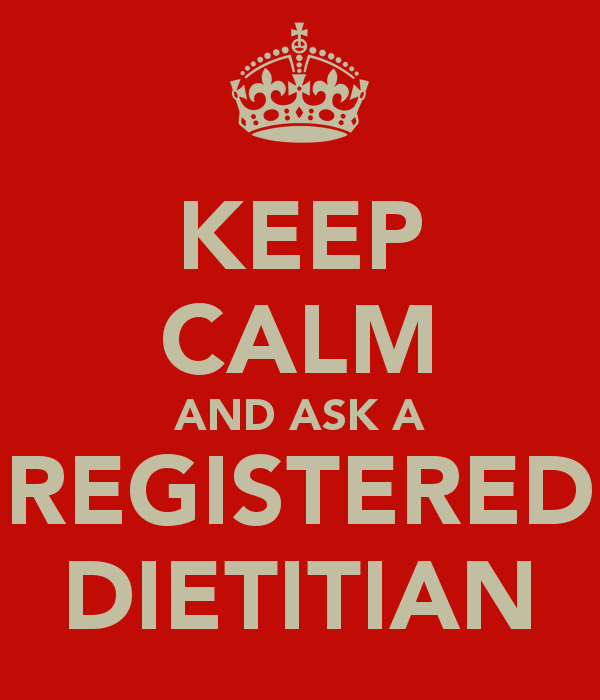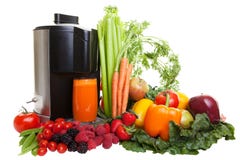In honour of National Dietitians Day earlier this year, I interviewed Natalia Baker, a friend who is a Registered Dietitian. (See the original interview here). We had some really great feedback and some readers posed their own questions via social media. Natalia was gracious enough to let me interview her again to answer questions I received from readers. Here's our conversation!
Jane: Hi Natalia! Thanks for agreeing to another interview to take some questions from readers!
Natalia: Hi Jane!
Thanks for having me back on your blog. I enjoyed reading the feedback from the last interview and was impressed by some of the great questions asked by your readers. It’s really encouraging that so many families are interested in nutrition and committed to offering healthy foods to their children. I hope I can shed some light on their questions.
Jane: Let's get down to business. Our first question comes from an anonymous reader who left a comment on our previous interview:
"What are your thoughts on juicing for dieting and detoxing?"
Natalia: Juicing is not a new concept but it seems to have made a big come-back lately. First things first – adding more veggies to your diet, in any shape or form, is always a good thing. Green juices can certainly contain a lot of good stuff and may help to improve nutrient intake. That said, the term “juicing” is more likely to be promoted as a method of losing weight and cleansing or detoxing the body. Quite simply, these claims are unfounded.
Let’s first talk about weight loss. Often juicing is sold as a way to kick-start a diet. Remember that losing weight comes down to a simple equation of calories in versus calories out. So yes, if you’re doing a juice cleanse or fast while limiting other foods you may very well lose weight. However I think that you need to view juicing in this context like any other fad diet. Will you be able to maintain it for the long term? Is it nutritionally adequate? Is it safe? Consider that when you extract the juice from fruits and vegetables you lose the fibre. Juices that are low in fibre, as well as low in fat and protein, won’t keep you feeling full very long and certainly won’t be satisfying as a meal replacement. Adding juice on top of your usual intake may also backfire. Depending on the recipe, some juices contain multiple servings of fruit which can equate to a lot of extra sugar and calories.
As for the popular appeal of the “detox” or “cleanse,” the reality is the human body is already equipped to perform these tasks. Our liver, kidneys and even skin do a pretty amazing job of keeping the good stuff in and the bad stuff out. While it may be tempting to try to erase poor eating choices of the past, it’s better to save your money than to invest in the teas, supplements or juicers marketed for this purpose. Instead, use a food diary to keep you on track and build on good eating habits.
Jane: I have often thought that the words "cleanse" and "detox" sound like things we think we want for our bodies (want moreso than need). I am glad to hear that you don't think they have much merit!
Image credit: Dreamtime
Jane: Our second question was submitted by Melissa via Facebook: "I find it frustrating how most yogurt is marketed as healthy but a lot of it is sweetened with aspartame (!!!). Do you have any recommendations on what I should look for when choosing a yogurt for my 12 month old?"
Natalia: Yes, the overwhelming number of yogurt products in the dairy case is a pet-peeve of mine as well. Whether in a tube, carton or pouch, the range of flavours and compositions has really exploded. Probably the largest variants are the type and amount of sweetener, and the percentage milk fat. Given the fact that traditional yogurts contain only two ingredients, milk and bacterial cultures, it is mind-boggling that the ingredient list on some products is so long.
Without getting into a lot of numbers, my best advice is to keep it simple. You can’t go wrong with a plain, unsweetened yogurt. Many of the flavoured yogurts available
contain a lot of sugar (or artificial sweetener) and should be viewed more like a dessert. Avoid yogurts that list sugar near the top of the ingredient list. Plain yogurt may take some getting used to but you can always add your own sweetener like pureed fruit or honey. Plain greek yogurt is also a good option because it contains more protein (in some cases as much as a serving of meat!). As far as percentage milk fat, I tend to shy away from anything that is “fat-free”. These foods usually have other additives to replace the fat and just aren’t as satisfying. Look for 3.25% M.F. or higher for your child.
Jane: Using berries and honey to sweeten plain yogurt is such a great suggestion. I love plain greek yogurt with honey and blueberries. My kids love it in a parfait (served in a clear drinking glass...nothing fancy) layered with granola and a variety of fruit.
Image credit: Student Life 101
Jane: Our next questions is from Julia via Facebook, and it is something I am curious about too: "Do you have any advice on vitamins? I find it overwhelming and confusing with all of the "recommended" daily vitamin intake information out there. Are there specific vitamins we should be taking everyday? Is a general multi-vitamin recommended or should we be able to get all of the nutrients we need from our diets alone? What about children?"
Natalia: Great question. For the most part it is possible to get the nutrition you need from your diet. Whole foods are always a better choice than vitamin or mineral supplements. If you feel that you may be lacking in a particular nutrient, always look to improve your diet first. Multivitamin/mineral supplements can help to reinforce a healthy diet but are not meant to replace it!
Image credit: My Kids Fan
That said, there are a few groups who can benefit from supplementation. Below are recommendations from Health Canada:
·
All woman who could become pregnant and those who are pregnant should take a multivitamin containing 0.4 mg of folic acid every day.
·
All men and women over the age of 50 should take a daily vitamin D supplement of 10 µg (400 IU).
·
A daily vitamin D supplement of 10 µg (400 IU) is recommended for breastfed infants.
Beyond this, I’d recommend discussing any individual concerns with a Registered Dietitian. If you don’t eat fish it may be worthwhile talking about an omega-3 supplement. Vegans and older adults may benefit from vitamin B12. Probiotics may be an option if you don’t like yogurt and are looking to increase the friendly bacteria in your gut.
The same advice goes for kids. Vitamin and mineral supplements are not usually necessary if the child is eating a variety of foods and is in overall good health. Remember that supplements do not provide the benefits of whole food such as fibre, carbohydrate, fat, protein and calories. Because the long term use of multivitamins in children has not been studied I’d be hesitant to give them to my children without good reason.
The problem with dietary supplements is they are not well regulated. It’s possible that there may be variation in potency from different manufacturers and even in pills from the same bottle. Remember that this is a multi-billion dollar industry. I always caution my clients to be skeptical of advice they receive from anyone who both promotes and sells supplements. Big conflict of interest.
Jane: Much of what you have said is the same as what my family doctor has told me. So often we get conflicting advice that it's like a heavenly choir when experts agree! (Okay, maybe that comparison may be a bit much...but it is so great!) I think we have this want to buy something to "fix stuff" about ourselves or our children (similar to the idea of cleanse or detox discussed above). We feel like vitamins are insurance or something, but we don't look at them with the same skeptical eye. What you say is so true - we have to remember that it is a big business!
Image credit: Modern Guide to Health
Jane: Our final question comes from an anonymous comment on our previous interview: "We make all of our own bread. What kind of flour do you recommend for maximum nutrition?"
Natalia: Well, kudos to you for taking the time to make your own bread. You are already ahead of the game! The benefit of making bread from scratch is you can control the amount of sugar and salt added, as well as avoid other additives and preservatives found in most commercially-prepared breads. Another great benefit is you can take advantage of the wide variety of flours available to boost nutrition and flavour. Whole grain flours are definitely the way to go. Whether it be whole grain spelt, rye, oats or wheat, the best way to maximize nutrition is to mix it up! Add seeds, dried fruit or spices for more variety. It can be really fun to experiment with a live culture and try a sourdough bread too.
In this area, I like to support local by purchasing my flour from Speerville Flour Mill. Whenever possible look for a stone ground milling technique to ensure a minimally processed flour that contains all parts of the grain (bran, endosperm, germ).
If you haven’t tried whole spelt flour, I’d recommend this bread recipe courtesy of Speerville Flour Mill:
4 c Organic Stone Ground Spelt Flour
2 t Fine Grey Sea Salt
Combine in large bowl.
1 1/3c Warm Water
2 t Yeast
Dissolve yeast in warm water
1 Egg - beaten
2 T Sunflower Oil
Add all liquids to flour. Mix and turn out on floured board. Knead approx 10 minutes or until smooth and elastic. Place dough in greased bowl and let rise in warm place until double. Punch down dough and form into loaf. Put in greased loaf pan and let rise until double.
Place in preheated oven at 350º F for approximately 35-40 minutes or until brown and hollow sound when tapped.
Cool on wire rack.
Thank you Natalia, for taking the time to share your expertise and experience by answering readers' questions. And thanks so much for sharing a recipe! I can't wait to try it.





Weirdly I feel ok until lunch and even avoid the dreaded tuck shop that is my work and all the Monday treats that are flying around. Best 3 day detox cleanse
ReplyWow! This could be one of the most useful blogs we have ever come across on Actually excellent info! I’m also an expert in this topic so I can understand your effort.
ReplyHunza Valley Supplement